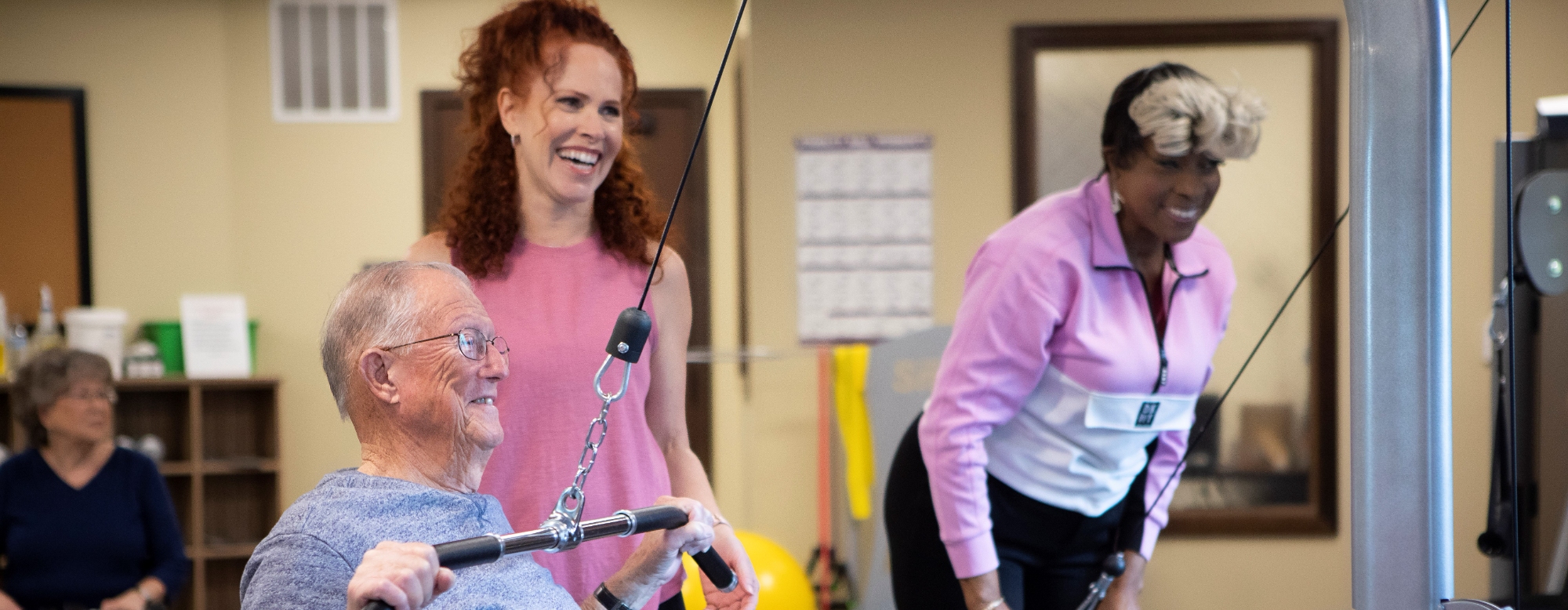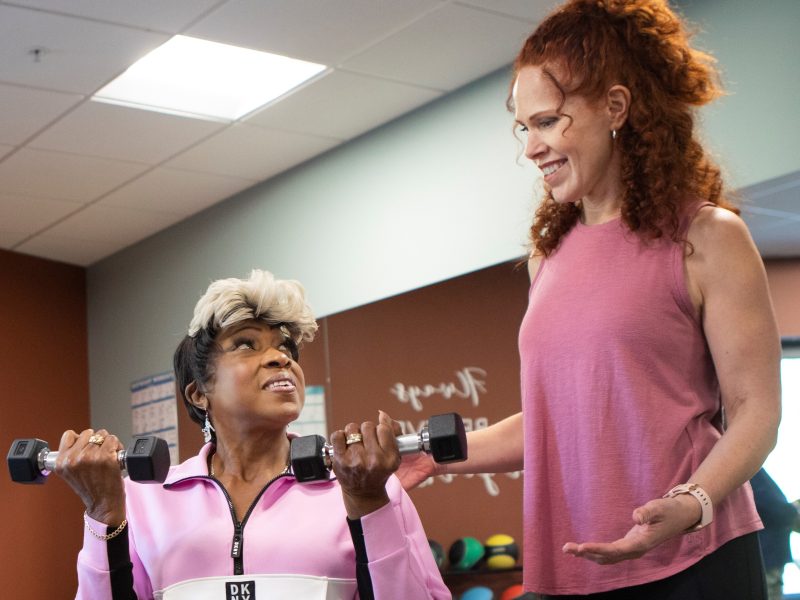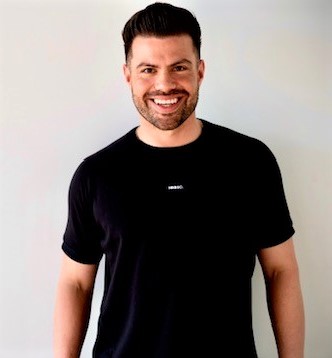
The importance of exercise as we age is well known, producing daily physical and mental benefits for regular tasks like walking, carrying objects and decision-making. For individuals with Parkinson’s disease, movement classes can play a significant role in balance, mobility and other lifestyle elements. Exercise is also well known for reducing depression in individuals with Parkinson’s.
According to the Parkinson’s Outcomes Project, a study conducted by the Parkinson’s Foundation, “establishing early exercise habits is essential to overall disease management.”
Wesley is well known for its excellent fitness programs. We have unique classes at the Wesley Bradley Park and Wesley Des Moines campuses for individuals living with Parkinson’s. Developed by the coordinators of fitness programming, Chelsea Beck and Ruben Pereyra, these classes involve low-impact movement with high benefits.
“My Parkinson’s class is called ‘Functional Movement Patterns’,” said Ruben. “This specialty class prioritizes the needs of those with health limitations such as Parkinson’s, arthritis, osteoporosis or any chronic diseases.”
Ruben collaborated with physical therapists, nurses and other community members to create the functional movement program.
A leader in the Puget Sound fitness community with over 16 years of experience, Ruben is well known for creating original classes that are fun yet challenging. The Des Moines campus currently offers over 25 different classes as well as monthly challenges, educational wellness seminars and personal training.
“The Parkinson’s program at Wesley Des Moines is very well-rounded and balanced,” he said. “Participants focus on efficient body mechanics and injury prevention. These movement patterns increase balance, stability, strength and flexibility.”
Chelsea has also worked as a physical trainer for 16 years. She’s developed an array of programs across the senior exercise spectrum. Her classes are known for being “chatty,” more like a large family gathering than an intense individual workout. She finds this convivial atmosphere enhances rather than detracts from focused movement and personal success.
“This specialty class always features extensive warm-up and cardio. Then I add in strength training, balance and core exercises,” she said. “For my Parkinson’s class, I mostly focus on multi-tasking exercises, including vocals and facial expressions, motor skills, gait challenges and more.”
Chelsea regularly sees residents speak clearer and walk with a more controlled gait after her classes. Many of us take for granted our ability to speak and walk. But for individuals with Parkinson’s, these classes can lead to improved self-esteem and overall disposition.
“It’s extremely rewarding to see how capable my students can be when they take my classes and gain the support of one another,” Chelsea said. “I want them to listen to their bodies and understand it’s okay to feel challenged or uncomfortable at times because this is when the body benefits.”
In addition to increasing physical range and balance, Chelsea said her class can help improve cognitive function and increase sleep consistency. Her class can also reduce risks of falling and contracting other diseases while strengthening bones.
“I can’t stress how important social engagement is to my Parkinson’s and other classes,” she said. “These sessions bring hope and mutual support that can also help to slow the disease. Personally, I enjoy all of these amazing relationships I make here. I absolutely love these beautiful people.”
Like Chelsea, Ruben stresses the social and personal benefits of his specialty classes. He begins each class with personal objectives; he then conducts the session with a blend of humor, inspiration, education and most of all, fun. He said developing this class, a month-long process, created a guideline for all of his other sessions.
“With this class, I really get into having a low-impact class where I discuss the importance of body movement functions. I combine my specialty in aerobics, strength, balance and flexibility and put a twist or two in to make it interactive for cognitive and neurological functions,” said Ruben.
Laughter is good medicine
Both instructors agree that laughter and interaction are key elements of their Parkinson’s programs. They create exercise routines that mimic real day-to-day routines and chores, including balance and strength movements that residents can easily translate into the rest of their week. Developing and honing these techniques lead to a more confident lifestyle and to obvious functional benefits.
“I have members tell me stories of how they are able to do more and feel better based on the programs that we offer,” Ruben said. “I even have doctors, sons, daughters and physical therapists calling me to tell me the great news of progress. I find this very rewarding,” he said.
The Parkinson’s Foundation states that “exercise is good for the heart and the muscles and can actually change the brain.”
Ruben and Chelsea are grateful for the opportunity to create robust and engaging fitness programs that achieve these goals. Visit your Wesley fitness center to learn more about specialty classes and other unique exercise opportunities.

